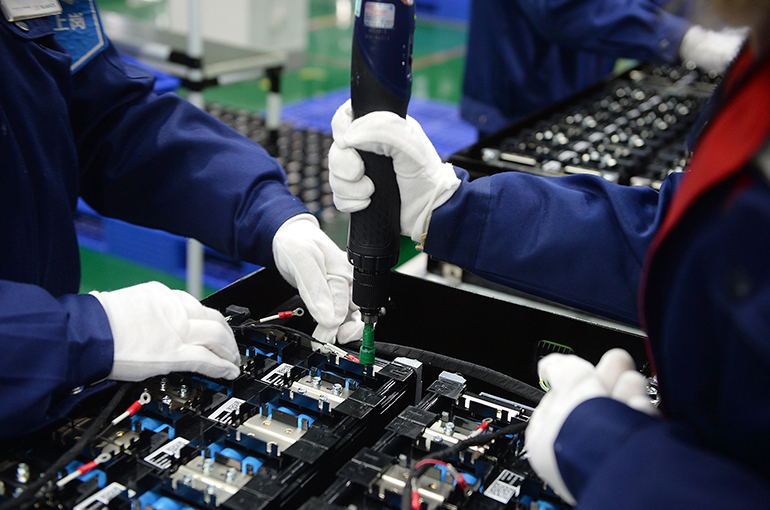 China’s Smaller EV Battery Makers Go Out of Business as Orders Dry Up
China’s Smaller EV Battery Makers Go Out of Business as Orders Dry Up(Yicai) April 1 -- Many Chinese small and medium-sized lithium-ion battery manufacturers are shuttering their factories due to a lack of customers as electric car batteries flood the market and as the price of the raw material lithium ore slumps.
The number of electric car battery manufacturers tumbled to 52 last year from 72 in 2020. Most of those that closed down were small and medium-sized companies unable to compete with the bigger players, such as Contemporary Amperex Technology and BYD, Wan Cheng, deputy general manager of a supplier of lithium battery firm in eastern China, told Yicai. But soon it will be the turn of larger firms, he added.
The price of lithium iron phosphate and ternary batteries almost halved last month from January 2023 to CNY0.42 (USD0.06) per Watt-hour and CNY0.48 per Wh, respectively, due to the tumbling price of lithium ore, according to market research firm Reali Research.
The market is dominated by industry giants. CATL and BYD’s installed capacity surged to 70.1 percent last year from 42.2 percent in 2019. Yet, in third place, CALB Group only holds 5.7 percent, followed by Gotion Hi-Tech with 4.1 percent and Eve Energy with 3.9 percent.
CATL and BYD continue to reduce their costs and prices, squeezing out other companies, Wan said. To survive, a company needs to produce high quality products, have a good supply of raw materials and be able to control costs, and many smaller firms are not able to manage this, Wan said.
"There is nothing to do, and the boss himself wants to find a stable job,” Wan said. On recent visits to several battery factories, Wan would often find the boss sleeping in the office, and half the workers would be on duty while the other half rested.
In order to cope with overcapacity and stiff competition, Honeycomb Energy will cut back on production, reduce its headcount and improve efficiency, Yang Hongxin, chairman and chief executive officer of the country’s sixth largest battery maker with a market share of 2.2 percent said earlier this year.
The supply glut is a result of a surge in investment in the battery sector in 2022 when the price of lithium carbonate surged 24 times to CNY600,000 (USD83,000) over the course of the year. Forty-four production projects with a capacity of over 1.2 terawatt hours were commissioned that year. But the battery capacity utilization ratio slumped to 41.8 percent in 2023 from 51.6 percent in 2022.
As investors continue to withdraw from the industry, more companies will face financial difficulties, Wan said.
Editor: Kim Taylor